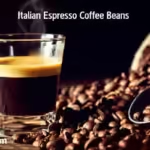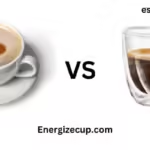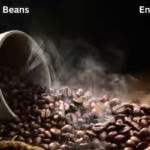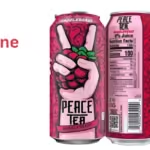Is ZOA Energy Drink a Healthy Choice? A Complete Review
Many people feel skeptical about energy drinks, preferring the comfort of a strong coffee to get through the day. I was one of them until I came across ZOA Energy Drink, created by Dwayne “The Rock” Johnson. Known for his fitness and health-focused lifestyle, I figured if anyone’s energy drink was worth a try, it had to be his.
What Makes ZOA Unique?
The first thing you’ll notice about ZOA is its bold, tribal-inspired design. It certainly stands out on the shelf, and finding it wasn’t easy; after visiting multiple stores, I finally tracked it down at Target.

The “zero sugar” claim on the can instantly grabbed my attention. With its promise of natural energy and minimal added ingredients, I was curious to see if it could replace my usual caffeine fix.
Why Choose ZOA?
Unlike most energy drinks, which can be high in sugar and empty calories, ZOA boasts a low-calorie, low-carb, and zero-sugar profile. With just 15 calories and 3 grams of carbs per 16-ounce can, ZOA provides a balanced source of energy without the sugar crash.
It contains 160 mg of caffeine, which is comparable to a strong cup of coffee, making it ideal for both work and workouts.
Natural Ingredients for Clean Energy
One of the highlights of ZOA is its use of natural caffeine sources like green tea and unroasted green coffee beans. This provides a steady release of energy without the jittery feeling common with many other caffeinated beverages.
The formula also includes B vitamins, essential for energy metabolism and focus, along with amino acids to support muscle growth. ZOA features camu camu, a berry rich in antioxidants, for added immune support.
How Much Caffeine Does ZOA Contain?
ZOA’s standard version delivers 160 mg of caffeine, making it suitable for any time of day, whether you need an afternoon pick-me-up or a pre-workout boost.
For those looking for an even stronger kick, ZOA offers a Pre-Workout version, which includes 200 mg of caffeine and additional ingredients like L-citrulline, Ginkgo biloba, and L-carnitine, designed to enhance endurance and focus during intense exercises.
How Does ZOA Taste?
ZOA’s flavor options are diverse and enjoyable. The Super Berry, Lemon Lime, and Original flavors are some of the most popular, with the latter resembling a better version of Red Bull.

Other flavors like Wild Orange, Pineapple Coconut, Tropical Punch, and White Peach offer a variety for every taste preference. Notably, ZOA uses only natural flavors, avoiding artificial ingredients, which enhances its clean taste and pleasant aftertaste.
Final Verdict
ZOA Energy Drink is a standout product in the crowded energy drink market, thanks to its natural ingredients, low-calorie profile, and effective energy boost.
It offers a cleaner, healthier alternative to traditional sugary energy drinks, with a focus on natural caffeine sources and immune-boosting components like camu camu.
Whether you need an energy boost during work or exercise, ZOA provides a balanced, jitter-free experience that supports both mental focus and physical performance.
Zoa energy drink ingredients
- Green Tea Extract: Supports weight loss, improves exercise recovery, and regulates blood sugar.
- Camu Extract: Lowers blood pressure, balances blood sugar, and provides antioxidants with high vitamin C content.
- Vitamins: Includes vitamin C, B-complex (B1, B2, B3, B5, B6, B9, B12), enhancing immunity, metabolism, and skin health.
- Natural Flavors: Unspecified flavoring agents; impact varies.
- Acerola Juice Powder: Boosts vitamin C levels.
- Sodium Citrate & Citric Acid: Reduces acidity; neutral effect on digestion.
- Turmeric Extract: Promotes heart health and reduces cancer risks.
- Choline Bitartrate: Aids liver health, mood, and cholesterol regulation.
- Sucralose: Zero-calorie sweetener; helps maintain low-calorie content.
- Acesulfame Potassium: Artificial sweetener; may have potential health risks.
- Amino Acids: (L-leucine, L-glutamine, L-valine, L-isoleucine, L-arginine, L-citrulline) – Supports muscle growth, immunity, and blood flow.
- Natural Caffeine: 160mg per serving; provides an immediate energy boost.
- Magnesium: Essential for energy production and biochemical reactions.

Does zoa have sucralose?
ZOA, the energy drink promoted by Dwayne Johnson, features 160 mg of caffeine and no sugar per 16-ounce serving. The drink’s sweetness is derived from two artificial sweeteners: Sucralose and Acesulfame Potassium.
ZOA vs. The Classic Cup of Coffee: A Caffeine Content Compariso
When examining ZOA vs. Coffee, a critical aspect to consider is the caffeine content. ZOA, known for its robust energy blend, contains about 160mg of caffeine, roughly equivalent to one or two cups of coffee.
This might seem overwhelming to some, especially when combined with other stimulants like white, green coffee, and green tea extract found in ZOA. As someone who has juggled between energy drinks and classic coffee, I’ve noticed that while ZOA offers a more complex energy blend, traditional coffee tends to be simpler in its caffeine delivery.
The choice between ZOA and coffee isn’t just about energy; it’s also about considering potential health concerns. Excessive consumption of energy drinks like ZOA has been linked to issues like liver injury, kidney problems, and constipation, something rarely associated with coffee. It’s essential to weigh these factors, understanding that while both offer caffeine, their impacts and additional ingredients can differ significantly.
Sugar Content in ZOA: A Health Perspective
ZOA Energy Drink has 23g of sugar per can, significant against the American Heart Association’s recommended 36 grams for men and 25 grams for women daily. As a health enthusiast, I see this sugar content as a critical factor in assessing the healthiness of an energy drink.
High sugar levels can lead to health issues like obesity, diabetes, and heart disease, making it vital to consider the long-term impact on health alongside the energy boost.

Caffeine Content in zoa
ZOA Energy Drink now offers enhanced nutritional benefits in its updated formula. For a 12-ounce serving, the drink contains 160 mg of caffeine and 90 mg of Vitamin C, which meets 100% of the daily value (DV). The 16-ounce serving provides even more, with 210 mg of caffeine and 120 mg of Vitamin C, accounting for 130% of the DV. This upgrade ensures consumers receive more beneficial energy with each serving.
Is zoa energy drink healthy
ZOA Energy is promoted as a healthier choice compared to conventional energy drinks due to its natural ingredients and lower sugar content, alongside an enriched vitamin profile.
However, determining its healthiness is subjective and varies based on personal health conditions, dietary preferences, and lifestyle.
This energy drink includes advantageous components like vitamins and natural caffeine from green tea extract. It also boasts the absence of artificial preservatives and flavors, appealing to those looking for a purer option in energy supplements.
Nevertheless, ZOA Energy does contain caffeine and other stimulants that might not be suitable for everyone, particularly those who are caffeine-sensitive or have specific health issues.
Although it has reduced sugar levels, the inclusion of sweeteners such as erythritol and stevia might be a concern for some people who aim to limit such additives in their diet.
The health implications of ZOA Energy ultimately depend on its integration into an individual’s overall nutritional habits and lifestyle. It’s crucial to scrutinize the nutrition facts and consider your health requirements when choosing to consume any energy drink.
For tailored advice regarding diet and potential health effects, consulting a healthcare provider or nutritionist is advisable.
What Does ZOA Energy Drink Taste Like
ZOA Energy Drink comes in five flavors, including the original, which strikes a balance between energy effectiveness and enjoyment. Its fruity flavor is highlighted by ingredients like Camu berries and Acerola Cherries, offering a unique taste experience.
Here’s my say on each flavor:
| ZOA Flavor | My Personal Review |
|---|---|
| Lemon Lime | This flavor had a funky smell, but surprisingly, it tasted pretty good. I’m quite particular about lime flavors in energy drinks, and this one meets the mark, except for the initial smell. |
| Super Berry | The flavor is somewhat watery yet quite pleasant. However, it’s not compelling enough for me to buy it again. It reminds me of Sugar-Free Red Bull and Sugar-Free Monster, which are better in both taste and cost. |
| Wild Orange | It tastes more like pineapple than orange. The taste improves as you finish the drink. The fruit flavor is there, just not the right fruit. |
| Pineapple Coconut | The coconut taste overpowers the pineapple, resulting in a total imbalance of flavors. |
| Original | Smells just like a multivitamin. Fortunately, it doesn’t have a medicine-like taste, which was a relief when I tried it. |
Artificial Sweeteners In ZOA Energy Drink
Two primary artificial sweeteners used in the sugar-free version of ZOA Energy Drink are sucralose and Acesulfame Potassium (commonly referred to as Ace-K).
In the realm of food and beverage products, especially energy drinks like ZOA Energy Drink, the use of artificial sweeteners like sucralose and Ace-K (acesulfame potassium) is common for taste enhancement without calorie addition.
Sucralose, a calorie-free sweetener that mimics the sweetness of regular sugar, emerged in the 1990s and has been studied in both human and rat studies. Concerns such as gut bacteria damage and cancer risk have been raised, but comprehensive human health research is still ongoing.
Ace-K, prevalent in diet products and sugar-free energy drinks, has undergone mice testing, indicating potential links to cancer, thyroid issues, and brain function changes.
However, definitive conclusions about its impact on human health are yet to be established, leaving room for ongoing safety debate and health effects analysis.
Key Takeaways Regarding ZOA Energy Drink
ZOA Energy Drink stands out with its focus on Natural Ingredients. It harnesses natural caffeine sources like green tea and coffee beans and opts for natural flavors and sweeteners, including stevia extract, steering clear of artificial ingredients.
Additionally, it’s packed with Essential Nutrients such as vitamins (Vitamin C, Vitamin D, and B vitamins), and minerals (potassium, magnesium), supporting overall health and energy production. For those watching their calorie intake, ZOA offers a Low-Calorie Option, ZOA Plus, with just 15 calories per serving.
However, its Caffeine Content is noteworthy; each can contain 160mg of caffeine, which is significant but still within the daily intake limit of 400mg for healthy adults. This provides a sustained energy boost without the jitters often associated with synthetic caffeine.
In summary, ZOA is a healthier alternative in the energy drink market, but like any such product, it should be consumed in moderation, considering individual health needs and sensitivities, especially for those with caffeine sensitivity.
Faqs: Is ZOA Healthy for You? The Surprising Facts Revealed!
Are energy drinks bad for your heart?
Energy drinks can have negative effects on heart health due to their high caffeine content and other stimulants. According to the Centers for Disease Control and Prevention (CDC), these ingredients can cause an increase in heart rate and blood pressure, which are recognized risk factors for heart disease.
Is ZOA being discontinued?
ZOA has discontinued two of its sugar-containing flavors, Original and Lemon Lime, but is expanding its sugar-free options. The company aims to increase its retail presence to 70,000 locations by the end of 2022.
Is one energy drink a day ok?
Dr. Sue states that for young, healthy individuals, consuming one energy drink per day should not lead to long-term health issues. However, those with hypertension or heart irregularities may experience increased heart palpitations from such stimulants.
What makes ZOA different from other energy drinks?
ZOA distinguishes itself by promoting healthy immunity alongside providing energy, focus, and hydration. It features a unique blend that includes 100% DV Vitamin C, antioxidants from sources like Camu Camu and Acerola, B-vitamins, electrolytes, and amino acids.






Cappuccino
Equal parts espresso, steamed milk, and milk foam, resulting in a creamy and frothy coffee beverage.
for more information visit site-http://jishanadm.infinityfreeapp.com
Your article was very informative, thank you
Your article helped me a lot, is there any more related content? Thanks!
Your article helped me a lot, is there any more related content? Thanks!